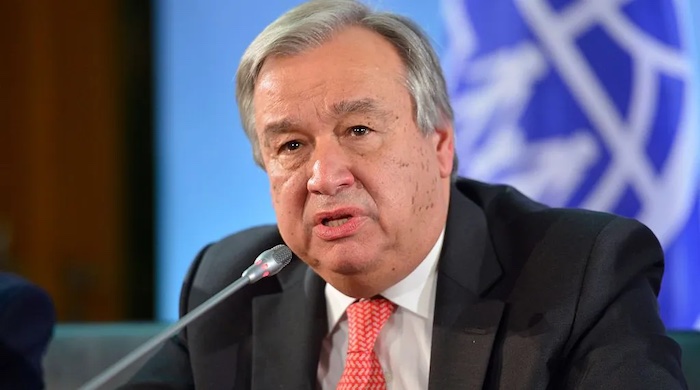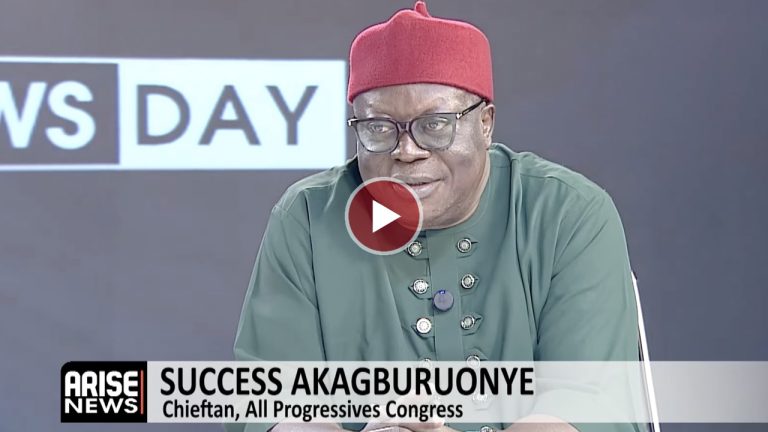
The United Nations (UN) has stated that despite the $2 trillion investments in renewable energy last year, overshooting the 1.5°c global temperature agreed by nations of the world now seems impossible.
Secretary General of the UN, António Guterres, speaking at the Energy Transition Roundtable at the 30th Conference of the Parties to the United Nations Framework Convention on Climate Change (COP30), in Belém, Brazil, called for people-centred investment in grids as well as end to fossil fuel subsidies.
The 1.5°C global temperature idea refers to a global warming limit that countries agreed to try to stay under, mostly to avoid the most dangerous and irreversible climate impacts. It means limiting the increase in the earth’s average temperature to no more than 1.5°C above what it was before the Industrial Revolution (around the late 1800s). The world has already warmed by roughly about 1.2°C.
“Last year, 90 per cent of new power capacity came from renewables; global investment in clean energy reached $2 trillion — $800 billion more than fossil fuels; renewables are now the cheapest source of new electricity in nearly every country. They are powering prosperity and empowering communities long left in the dark.
“Every dollar invested in renewables creates three times more jobs than a dollar invested in fossil fuels — and clean energy jobs now outnumber fossil fuel jobs worldwide. The renewables revolution is here. But we must go much faster — and ensure all nations share the benefits.
“At COP28, countries agreed to transition away from fossil fuels in a just, orderly and equitable manner; and to triple renewable energy capacity and double energy efficiency by 2030. The mandate is clear — now we must close the delivery gap.
“And this, Excellencies, is where we are falling dangerously short. Even if new national commitments are fully implemented, the world is still heading for clearly more than 2°C of warming. That means more floods, more heat, more suffering — everywhere. Scientists tell us that overshooting 1.5°C is now inevitable — starting, at the latest, in the early 2030s. But how high and how long that overshoot lasts depends on the speed and scale of our actions today,” the UN chief stated.
To return below 1.5°C by century’s end, he pointed out that global emissions must fall by almost half by 2030, reach net zero by 2050 and go net negative afterwards.
According to him, the first thing to do is to provide clarity and coherence and align laws, policies and incentives with a just energy transition; and eliminate fossil fuel subsidies that distort markets and lock us into the past.
“Second, put people and equity at the centre of the transition; support workers and communities whose livelihoods still depend on coal, oil and gas; provide training, protection and new opportunities — especially for young people and women.
“Third, invest in grids, storage and efficiency. Renewables are surging, infrastructure must catch up — fast. Fourth, meet all new electricity demand with clean power — including from the data centres driving the artificial intelligence (AI) revolution. Technology must be part of the solution, not a new source of strain,” he added.
Guterres stated that the fifth thing to do is to unlock finance at scale for developing countries, stressing that today, Africa receives 2 per cent of global clean energy investment and insisting that the world needs international cooperation to tear down barriers, cut the cost of capital and crowd in private investment.
“The pathways for each country may look different, but the destination must be the same: A net-zero world, followed consistently by a net negative world — powered by renewables. We must support developing countries to implement their commitment to transition away from fossil fuels: Through stronger cooperation, investment and technology transfer — and calibrated to different capacities and dependencies.
“Let us move with speed and solidarity. Make fairness the engine of acceleration — and build economies that are clean, inclusive and resilient.Turn climate necessity into development opportunity — everywhere. The fossil fuel age is ending. Clean energy is rising. Let us make the transition fair, fast and final,” the UN Secretary General stressed.
Meanwhile, the African Development Bank (AfDB) Group President, Sidi Ould Tah, has reaffirmed the institution’s commitment to transforming “promises into progress,” highlighting the bank’s status as the first multilateral development institution to achieve financing parity between climate adaptation and mitigation.
Speaking at the Belém Climate Summit, which brings together world leaders in Brazil ahead of COP30 to review progress on the Paris Agreement, Dr Ould Tah underscored the Bank’s determination to intensify climate action.
“We are all gathered here, driven by our collective responsibility to protect nature, our most precious asset in combating climate change and ensuring humanity’s survival,” he told the plenary during a session on Climate and Nature: Forests and Oceans.
African delegates, a statement from the bank said, highlighted the continent’s critical role in global climate stability. The Republic of Congo noted that Africa—home to 17 per cent of the world’s tropical forests—loses an estimated 3.7 million hectares annually, while Nigeria’s Vice President Kashim Shettima called for new mechanisms to safeguard forests and oceans.
“What Africa is asking for is equitable access to the carbon market to enable countries to restore forest and ocean resources,” Shettima said.
Bank president Ould Tah emphasised that Africa’s ecosystems are not just natural assets but vital climate regulators. “The Congo Basin is a compelling example — it holds the world’s largest tropical peatlands, storing about 29 billion tons of carbon, equivalent to three years of global emissions,” he said.
He outlined the Bank’s climate strategy, guided by its four cardinal points, which focus on mobilising capital for green growth, promoting debt-for-nature swaps, empowering women and youth in environmental protection, and investing in resilient, nature-friendly infrastructure.
Also, Ould Tah joined Brazilian President Luiz Inácio Lula da Silva to launch the Tropical Forests Forever Facility, a global fund designed to support countries sharing the Amazon and Congo Basins, as well as other tropical forest regions.
“The African Development Bank warmly welcomes Brazil’s historic ‘Tropical Forest Forever’ initiative,” Ould Tah said, calling it a milestone in global climate solidarity. “This visionary partnership aligns with our biodiversity programs, such as the Congo Basin Forest Fund and the Central African Forests Commission,” he added.
As COP30 negotiations resume on November 10 (today), delegates are expected to pursue progress on the New Collective Quantified Goal (NCQG) for climate finance, which commits developed countries to mobilise at least $300 billion annually by 2035 for developing nations.
With those commitments yet to materialise, the AfDB said it is helping the continent explore innovative financing solutions.
Emmanuel Addeh



